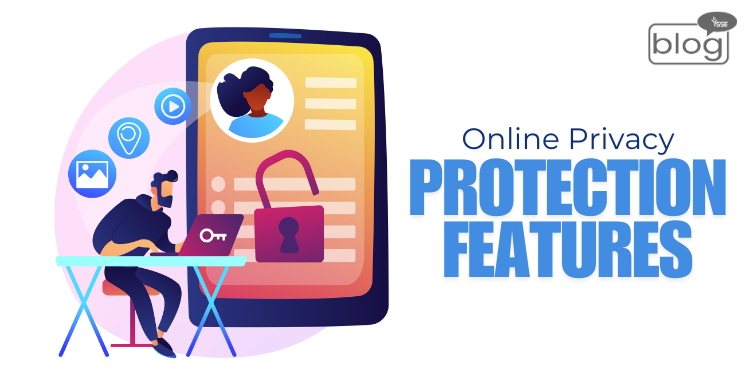Privacy has become really exorbitant in today’s world. The more we are being engaged online through various social media and sites, the more we are leaving behind our digital footprints. Different businesses, companies, hackers, and governments technically collect our personal data and keep on tracking our online activities without us realizing it. The number of privacy issues, including high-profile data breaches and tracking practices, is increasing with time, along with the number of victims whose data is falling into the wrong hands. Consequently, it has become paramount of importance to take measures to protect one’s online privacy. Online privacy protection regards taking actions to safeguard the data and control the access. With time, several easy-to-use tools and techniques have been invented for this purpose. A breakdown of some effective tips that can be followed to protect online privacy is given below:
1. Enhance your privacy and security settings
Activate safe browsing and automatic clearing of browsing history, cache, and any kind of temporary files in your search engine. Disable data sharing and block third-party organizations. Keep the updated version of your software and devices to avoid any security weaknesses. By doing these, you can minimize tracking and reduce your digital footprint.
2. Use a privacy-focused browser or an ad blocker
Use browsers like Tor Browser, Safari, Brave, DuckDuckGo, etc., or ad blockers like AdblockPlus, uBlock Origin, AdGuard, etc. that incorporate tools in order to block trackers and ads and limit data collection by not saving history, cookies, or temporary files.
3. Antivirus and firewall protection
Antivirus software can safeguard your device by scanning them to detect harmful programs. Along with antivirus software, it is a good choice to enable a firewall if you want to block illicit entities from accessing your system.
4. Do not use public Wi-Fi
It is always better not to use public Wi-Fi. Nowadays, places with public Wi-fi are quite famous for uninterrupted communication flow. But little do people understand the damaging effects of Wi-Fi. While using unsafe public Wi-Fi you become an easy target to hackers for tracking your online activities.
5. Utilize virtual private network
By using a VPN, you can hide your IP address. There are plenty of free VPNs found online that block third parties from tracking your data. Furthermore, using a VPN while connected to public Wi-Fi is a wise suggestion.
6. Be cautious while downloading and logging in
It is really important to be careful when downloading files or logging into websites. Download software or files from reliable sources. The easiest phishing attack is done through links. So do not click on any links unless you’re expecting the file. Do not fill up any forms with your personal information if they seem suspicious.
7. Set up two-factor authentication
Set up 2FA for all important accounts in order to create well-built security. By requiring additional forms of verification beyond just a password, these steps make it hard for unauthorized entities to access. You can set up multi-factor authentication as well for further security.
8. Use secure messaging apps
Some of the messaging apps are designed with end-to-end encryption methods. It protects data by ensuring that no one except the sender and the receiver can see the text or file they are sharing. You can find information on plenty of such apps online.
9. Use Password Manager
Data breaches are mostly caused by weak or easy passwords. Along with generating unpredictable passwords for various online accounts, it saves passwords so you don’t need to remember them.
10. Use secure file deletion tools
Sometimes when we delete files, the actual data remains intact. Secure file deletion tools refer to specialized software that erases files permanently from your device so that no advanced recovery methods can retrieve them. One well-known example of such software is Eraser.
11. Raise awareness of online privacy with family
Even if you are aware of online privacy, it’s really important to educate your family members about the importance of protecting personal information, such as not sharing passwords, recognizing phishing attempts, etc. Encourage your family to follow and take all the measures to protect themselves from cyberbullying, data breaches, and other online threats.
Each of these measures is really effective when combined with others to create a strong security approach. In today’s world, it is crucial for a person to know the importance of protecting online privacy and the approaches to accomplish this.
To read more blogs, click here
Writer
Kazi Mirana Mainuddin
Intern, Content Writing Department
YSSE.

